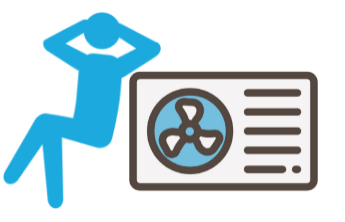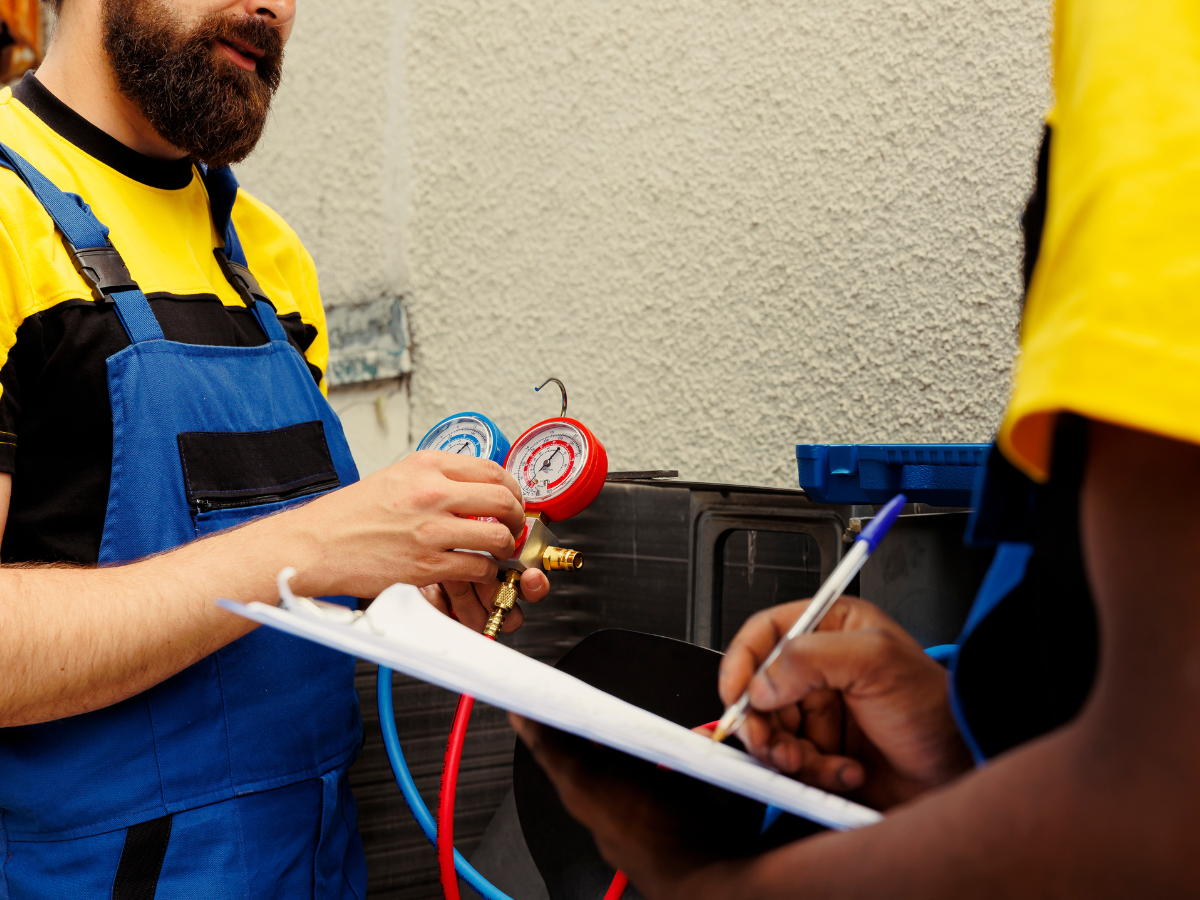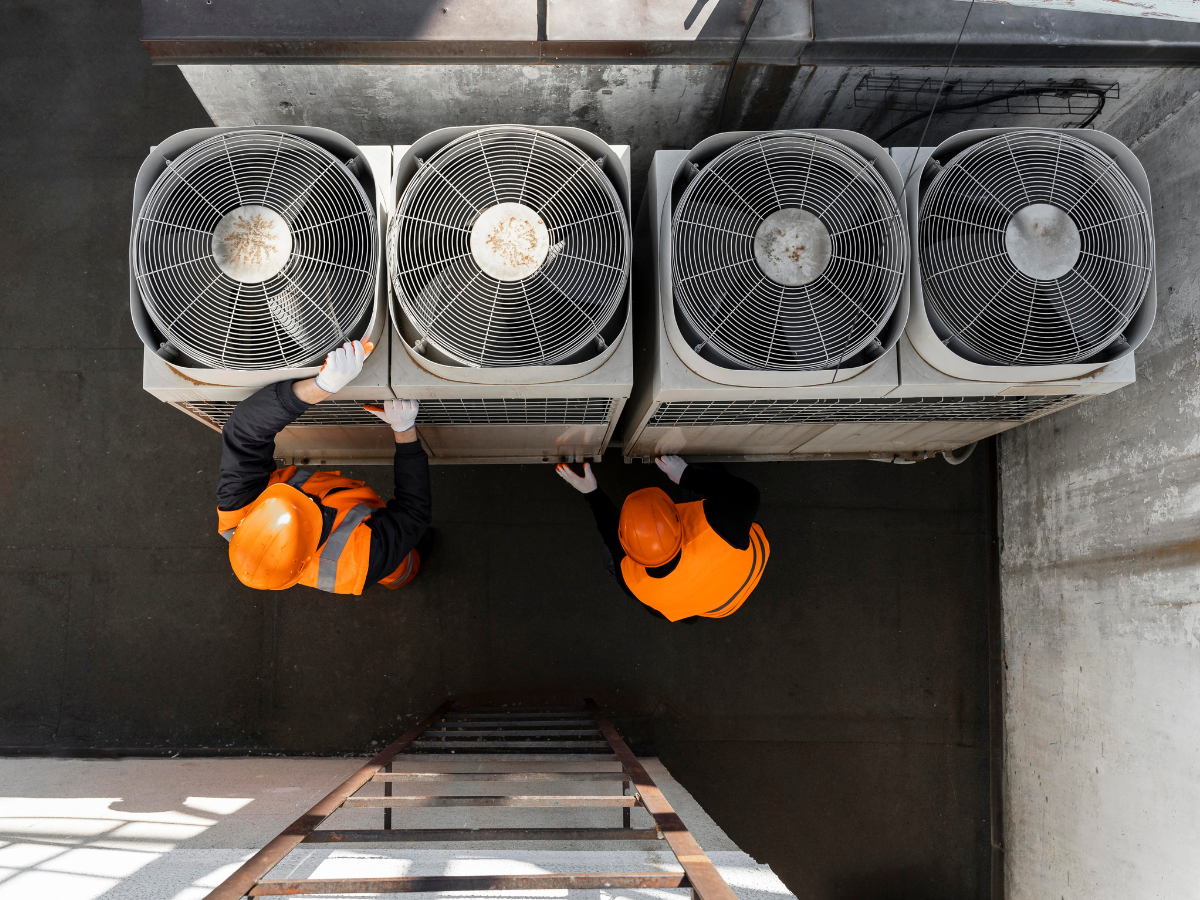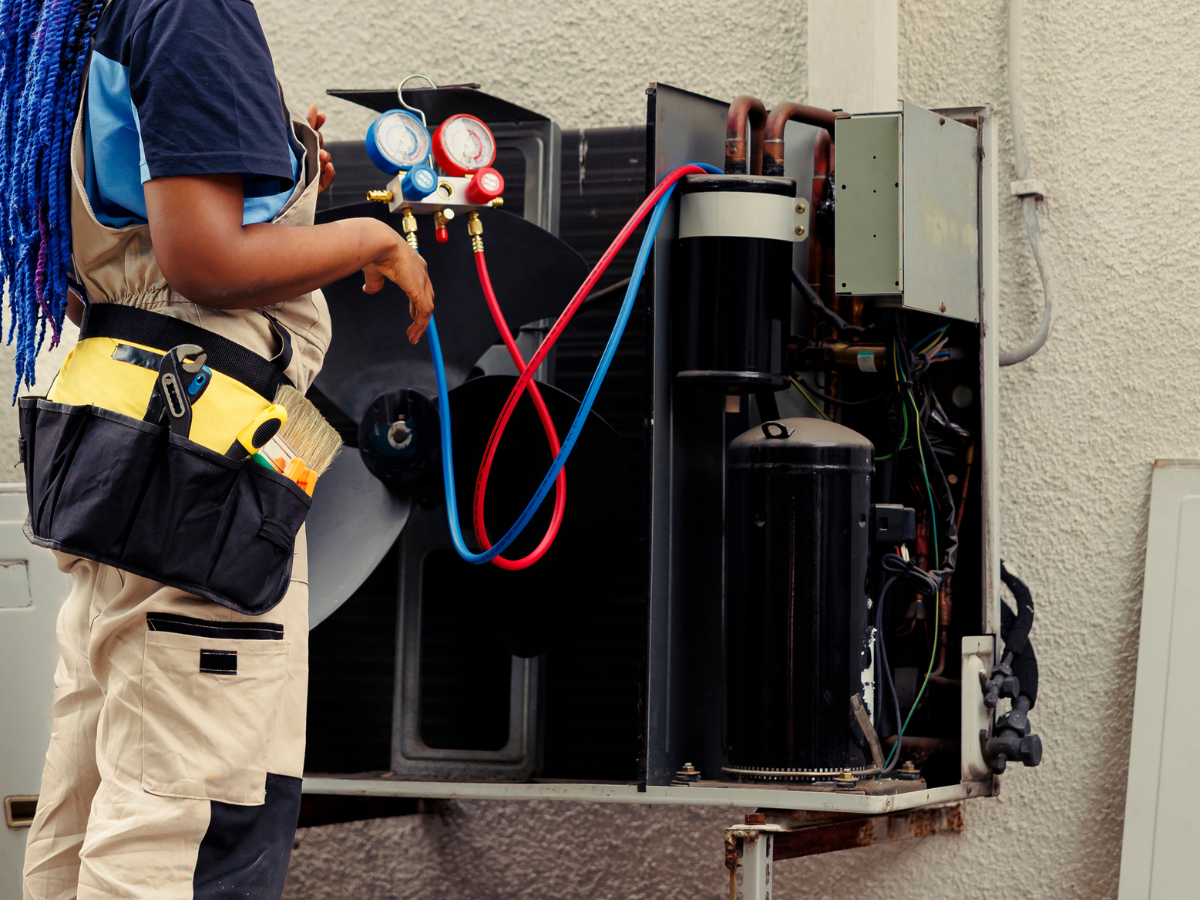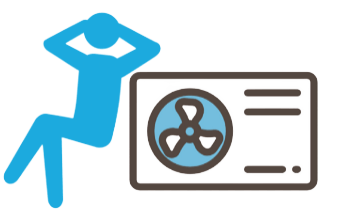Choosing the Right HVAC Units for Comfort and Energy Savings
When it comes to maintaining a comfortable indoor environment, HVAC units play a crucial role. Whether you're installing a new system or upgrading an existing one, selecting the right HVAC unit requires careful consideration. From energy efficiency to system types and maintenance, understanding your options will help ensure long-term comfort and savings. Comfort Zone HVAC is here to provide expert guidance and reliable solutions for your heating and cooling needs.
What You Need to Know About HVAC Units
HVAC (Heating, Ventilation, and Air Conditioning) systems are designed to regulate indoor temperatures, control humidity, and improve air quality. Different units serve various purposes, and choosing the right one depends on factors such as home size, climate, and personal preferences.
Types of Systems
1.Central Air Conditioning Systems
- Ideal for cooling large spaces efficiently.
- Uses a system of ducts to distribute cool air throughout the home.
- Works well when paired with a furnace for year-round comfort.
2. Ductless Mini-Split Systems
- Great for homes without existing ductwork.
- Offers zoned cooling and heating for better control over energy use.
- Quieter operation compared to traditional air conditioning units.
3. Heat Pumps
- Provides both heating and cooling, making it a versatile choice.
- Highly energy-efficient and environmentally friendly.
- Works best in moderate climates where extreme temperatures are rare.
4. Furnaces
- Primarily used for heating during colder months.
- Can run on gas, oil, or electricity.
- When paired with an air conditioning unit, it offers comprehensive climate control.
5. Hybrid Systems
- Combines a gas furnace with an electric heat pump for efficient heating and cooling.
- Automatically switches between the two based on temperature needs.
- Helps reduce energy costs without sacrificing comfort.
6. Portable and Window AC Units
- Suitable for small spaces or temporary cooling needs.
- Easy to install but less efficient than whole-home systems.
- Best for renters or homeowners needing quick cooling solutions.
Factors to Consider
1. Energy Efficiency
Investing in an energy-efficient HVAC unit can lower your utility bills and reduce environmental impact. Look for:
- SEER (Seasonal Energy Efficiency Ratio) Rating: Higher SEER ratings indicate better efficiency.
- ENERGY STAR Certification: Ensures compliance with efficiency standards.
- Variable-Speed Motors: Adjust airflow to maintain consistent temperature with less energy consumption.
2. Home Size and Layout
The right HVAC unit should match your home’s size to ensure proper heating and cooling. A system that’s too small will struggle to maintain comfort, while an oversized unit may lead to unnecessary energy use.
- Conduct a load calculation to determine the appropriate size.
- Consider factors like insulation, window placement, and ceiling height.
3. Climate and Weather Conditions
Your local climate significantly impacts HVAC performance:
- Hot climates: Opt for high-efficiency air conditioning units.
- Cold climates: Consider a furnace or heat pump designed for low temperatures.
- Humid regions: Look for units with dehumidification features.
4. Installation and Maintenance Costs
While upfront costs are important, long-term expenses also matter. Consider:
- Installation complexity: Ducted systems may cost more to install than ductless options.
- Routine maintenance: Regular servicing extends unit lifespan and ensures efficiency.
- Warranty coverage: A strong warranty can protect against unexpected repair costs.
5. Indoor Air Quality Features
Modern units of hvac come with advanced air purification features to improve indoor air quality:
- HEPA Filters: Capture allergens and dust particles.
- UV Light Purification: Eliminates bacteria and viruses.
- Humidity Control: Helps maintain a balanced indoor environment.
Keeping Your HVAC Unit Running Efficiently
Proper maintenance ensures efficiency, extends lifespan and prevents costly repairs. Here are key maintenance tips:
1. Change Air Filters Regularly
- Dirty filters reduce airflow and strain the system.
- Replace every 1-3 months, depending on usage and air quality.
2. Schedule Annual Tune-Ups
- Professional inspections help catch issues before they lead to breakdowns.
- Regular servicing optimizes performance and efficiency.
3. Keep Outdoor Units Clean
- Remove debris, leaves, and dirt from around condenser units.
- Ensure at least two feet of clearance for proper airflow.
4. Monitor Thermostat Settings
- Use a programmable thermostat to adjust temperatures automatically.
- Avoid drastic temperature changes that force the system to work harder.
5. Inspect Ductwork for Leaks
- Leaky ducts waste energy and affect system efficiency.
- Sealing leaks helps maintain consistent indoor temperatures.
6. Check Refrigerant Levels
- Low refrigerant can reduce cooling efficiency.
- If levels are low, professional servicing may be needed to locate and fix leaks.
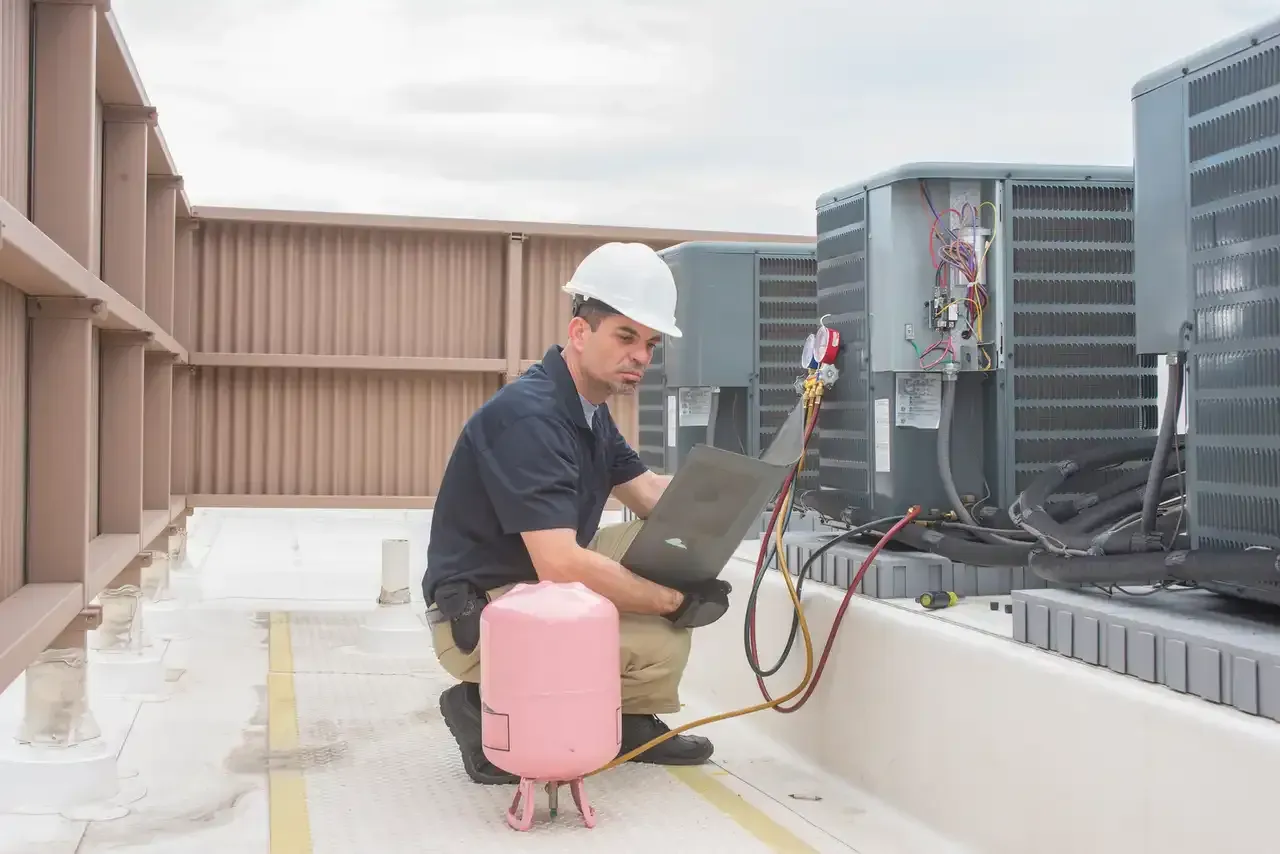
Signs It’s Time to Replace Your HVAC Unit
Even with regular maintenance, you eventually need a replacement. Look for these signs:
- Frequent Repairs: If repair costs exceed 50% of a new unit, replacement is a better option.
- Rising Energy Bills: Older systems lose efficiency over time.
- Uneven Heating or Cooling: Temperature inconsistencies may indicate system failure.
- Strange Noises or Odors: Unusual sounds or smells can signal mechanical problems.
- Unit Age: Most HVAC systems last 10-15 years before needing an upgrade.
Reliable HVAC Professional
Selecting the right HVAC contractor ensures proper installation and service. Look for:
- Licensed and Certified Technicians: Ensures expertise and compliance with industry standards.
- Positive Customer Reviews: Testimonials provide insight into service quality.
- Transparent Pricing: A detailed estimate prevents unexpected costs.
- Strong Warranties and Guarantees: Protects your investment for years to come.
- 24/7 Emergency Service: Essential for unexpected breakdowns.
Smart Home Integration and HVAC Systems
With the rise of smart home technology, HVAC system now offer greater convenience and efficiency:
- Wi-Fi Thermostats: Allow remote temperature control via smartphone apps.
- Zoned Heating and Cooling: Helps optimize comfort in different rooms.
- Energy Monitoring: Tracks usage patterns to identify cost-saving opportunities.
Sustainable HVAC Solutions
As energy efficiency and environmental impact become key considerations, HVAC systems are evolving to meet sustainability standards. Homeowners are now opting for:
- Geothermal Systems: Harnesses natural ground temperatures for heating and cooling.
- Solar-Powered Units: Uses renewable energy for maximum efficiency.
- Smart Sensors: Adjusts climate control based on occupancy and outdoor conditions.
Conclusion
Investing in the right HVAC units enhances comfort, improves air quality, and reduces energy costs. Whether upgrading an old system or installing a new one, understanding your options ensures you make an informed decision. If you're considering a heat and air unit, choosing an energy-efficient model can further optimize performance and savings. Regular maintenance extends the lifespan of your system and keeps your home comfortable year-round.
For professional HVAC services and expert advice, Comfort Zone HVAC is here to help. From installation to maintenance, ensuring your home’s climate control needs are met with reliability and efficiency remains our top priority.
Visit our website at https://www.comfortzonehvacwhatcom.com/ or contact us today to learn more about how we can help you create a comfortable and energy-efficient home!
